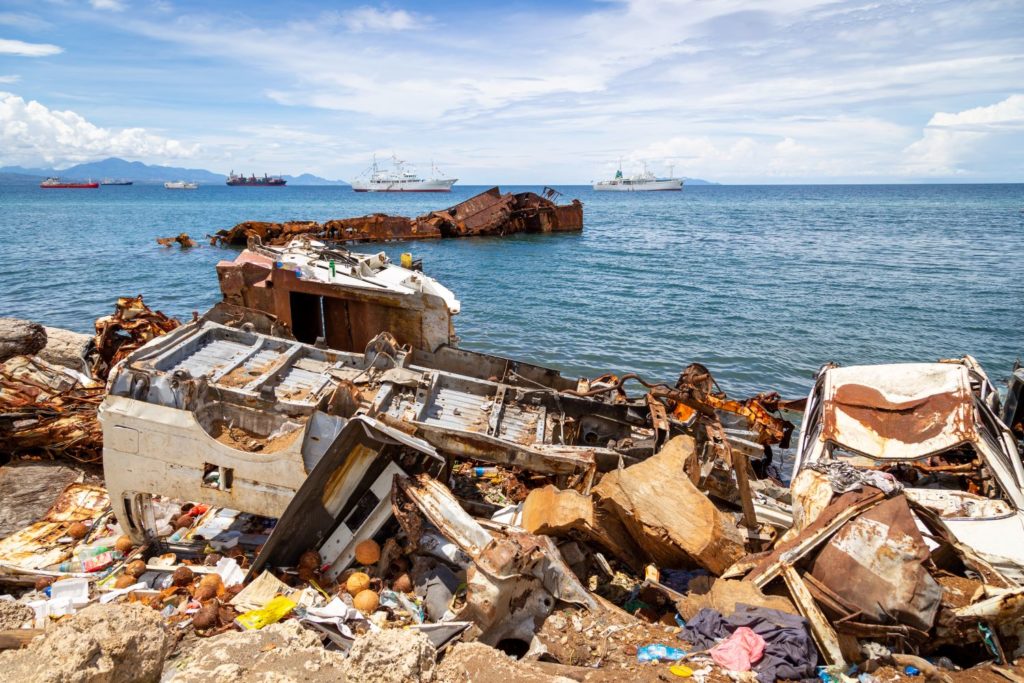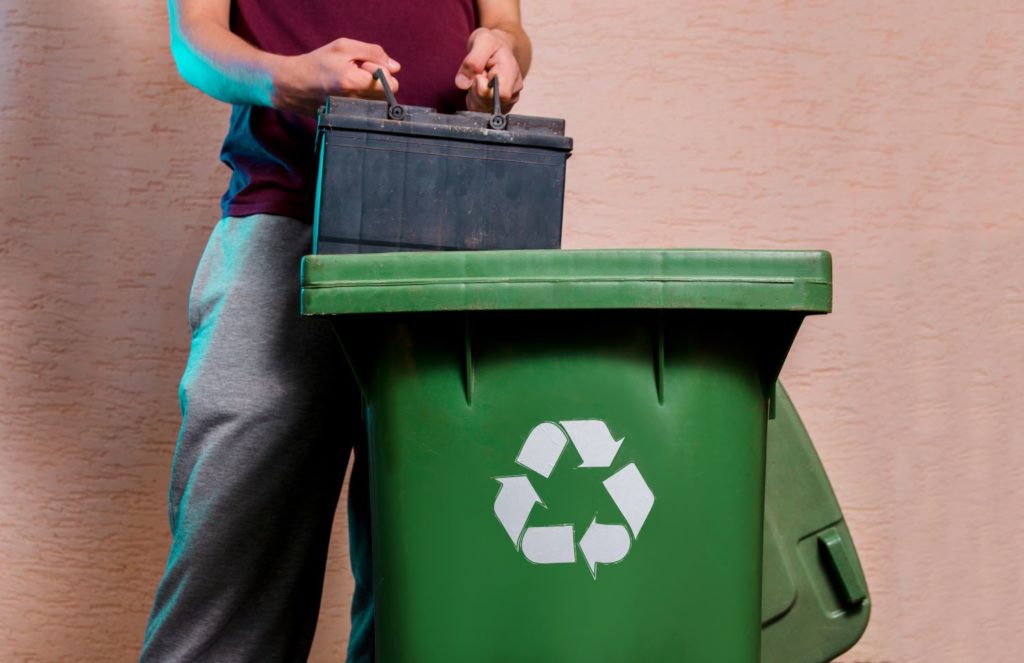Reading Time: 3 minutes
Used car batteries are a pain to store in the garage. They take up space, weigh a ton and look ugly. So it’s tempting to drive to the nearest body of water, pop in the battery, watch it sink beneath the waves, and call it a day. Out of sight out of mind.
However, throwing car batteries into the ocean can land you in hot water. Not only does it break the law, it also harms the environment and threatens people’s health. It is your responsibility to take used batteries to a recycling station, preferably the same store that sold you the battery.
Why is it illegal to throw car batteries into the ocean?
Most car batteries are lead-acid batteries, where the metal plates are immersed in an electrolyte solution to store and release electricity. These plates are made of lead-based alloys, while the electrolyte solution contains sulfuric acid.

Both lead and sulfuric acid are toxic substances. Acid will cause serious injury if it comes into contact with skin or eyes. Meanwhile, lead poisoning is a serious health problem worldwide, especially for children.
According to the Environmental Protection Agency (EPA), it is illegal to throw trash with toxic substances or properties into the ocean. In addition, many states prohibit the disposal of used car batteries in a body of water or in a landfill.

How to properly dispose of car batteries
Now that you know that it is not legal and safe to dispose of your used car battery in the nearest body of water or at your local landfill, you are probably wondering about the correct method of disposing of your car battery.
For used car battery disposal, the EPA recommends one of two methods: return the spent lead-acid battery to a battery retailer or deliver it to a recycler that collects solid or household hazardous waste at your area
The US recycles almost all of its lead-acid batteries. This policy keeps toxic material out of the environment, conserves resources and protects people – including landfill workers – from exposure to hazardous substances.
There is an advantage to returning used lead-acid batteries to the retailer. Most retailers charge a deposit fee on top of the tag price. You can get your deposit back if you give the old battery to the store.
If for some reason the retailer does not accept used car batteries, find the nearest recycling station. They can safely handle lead-acid batteries and other hazardous waste for recycling.

What about lithium ion car batteries?
Electric vehicles (EVs) run on lithium ion batteries (Lithium Ions). It is also illegal to throw used lithium-ion car batteries into the sea. Also, they are generally too large and complicated to remove.
Instead, contact the car dealer, shop or salvage yard where you got the EV or its battery. They are trained and equipped to remove the used or broken lithium ion battery from your vehicle.
The post Here’s Why Throwing Car Batteries Into The Ocean Is A Bad Idea (+Proper Disposal Tips) appeared first on Into the Garage with CarParts.com.

